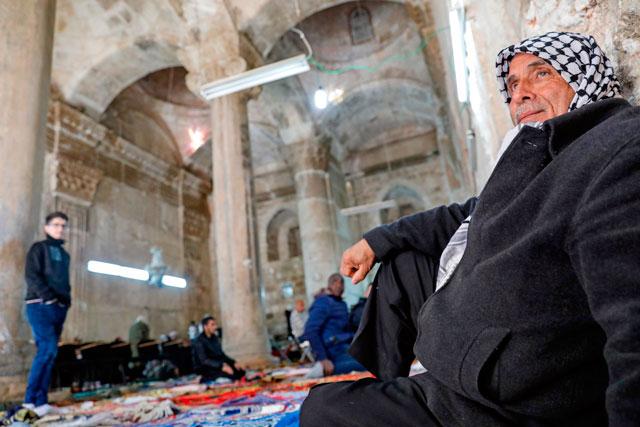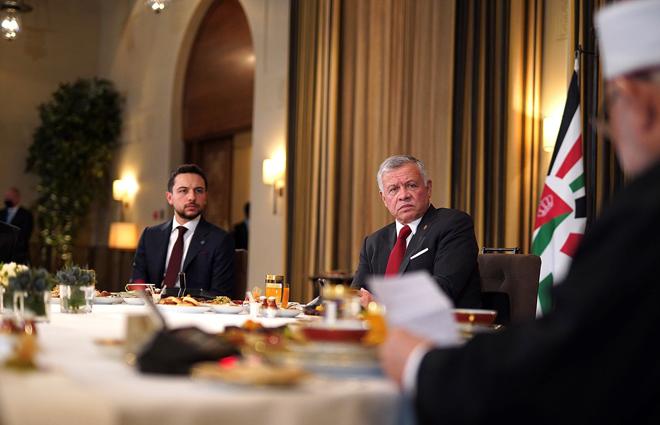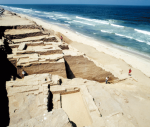You are here
Jerusalemites 'counting on' Hashemite Custodianship amid 'weak' Arab support
By Mohammad Ghazal - Mar 19,2019 - Last updated at Mar 19,2019

A Palestinian Muslim worshipper sits by a wall inside Bab Al Rahmah (Gate of Mercy), inside Al Aqsa Mosque complex in the Old City of Jerusalem, on Sunday (AFP photo)
AMMAN — The Hashemite Custodianship over Jerusalem’s Islamic and Christian holy sites is “highly regarded” among Jerusalemites, they said on Tuesday, but there is disappointment over “weak” stands from Arab and Islamic countries in supporting Jerusalemites and safeguarding the city’s holy sites.
In spite of mounting pressures and limited resources, among other challenges, Jordan remained constant in its support and efforts to safeguard the holy sites in the city, but the Kingdom cannot do it alone, residents of Jerusalem told The Jordan Times on Tuesday.
“I would like to compare Jordan’s role in protecting the Christian and Islamic sites in Jerusalem... to a bright moon in a dark night when there are no other stars,” Bernard Sabela, a resident of Jerusalem and a retired sociology professor from Bethlehem University, told The Jordan Times over the phone.
“We in Jerusalem feel that Jordan, and in spite of all the pressures, challenges and waves of refugees, is still constant in its support and strongly attached to Jerusalem and its holy sites,” Sabela added.
“This is not merely rhetoric… Jordan does not only take stands, but also translates them into actions,” he added.
“In light of the pressures it is facing, we would understand if Jordan chose to stay away and back off, but… Jordan chose to remain constant in its support to the holy sites,” the Jerusalemite said.
“Jordan honoured and kept the Pact of Omar and is strongly committed to its relationship with Jerusalem and its residents and areas, in spite of all the challenges including the so-called deal of the century,” he added.
Jerusalemites count on Jordan’s role, he added.
“The Hashemites have proved to be leaders and pioneers in safeguarding the holy Islamic and Christian sites in Jerusalem and we stress that the continuation of their role ushers in a better future for us in Jerusalem and for the holy Islamic and Christian sites in the city,” Sabela said.
Ziad Hammouri, the director of the Jerusalem Centre for Social and Economic Rights, pointed out Jordan’s efforts in pressuring Israel to remove metal detectors at the entrances of Al Aqsa Mosque in 2017, but said that the Israeli occupation did not honour agreements it made at the time.
Hammouri also referred to the 2013 agreement signed by His Majesty King Abdullah and Palestinian President Mahmoud Abbas in Amman reaffirming the King’s custodianship over holy sites in Jerusalem, and stating that King Abdullah has the right to exert all legal efforts to safeguard them, especially Al Aqsa Mosque, which is defined as “the entirety of Al Haram Al Sharif”.
“Jordan’s role is evident as well in the maintenance of the holy sites and in increasing the number of guards at Al Aqsa Mosque… Jordan is facing challenges and difficulties as the Israeli occupation does not honour agreements,” he told The Jordan Times on Tuesday.
“Jordan is left alone in defending the holy Islamic and Christian sites in Jerusalem and all promises by the Arab world to support the Jerusalemites and the holy sites were not translated into actions,” he added.
Voicing appreciation of Jordan’s role in supporting the holy Islamic and Christian sites in Jerusalem, Rania Elias, director of the Yabous Cultural Centre in Jerusalem, said that Jerusalemites are fighting a difficult and existential battle.
She underlined the need for a larger role by the Arab and Islamic world in Jerusalem and in supporting the steadfastness of the Jerusalemites.
“Condemnations are not enough and we have reached a stage where we cannot tolerate any more… there is disappointment over the role of the Arab and Islamic world, and we feel they are not doing what they can towards Jerusalem and the holy sites,” she told The Jordan Times.
“We need more practical measures by the Arab and the Islamic world… Jordan alone cannot face all the challenges and there is a need for consensus among the Arab states, whose stances are dispersed,” Elias told The Jordan Times on Tuesday.
Related Articles
AMMAN — His Majesty King Abdullah on Monday hosted an iftar for awqaf and church leaders from Jerusalem.Speaking at the iftar, attended by H
AMMAN — The Islamic Christian Commission for supporting Jerusalem and holy sites on Monday praised the recent actions taken by the Jordanian
AMMAN — The Lower House Palestine Committee and Legal Committee on Monday met with Head of the Supreme Islamic Council and Imam of Al Aqsa M


















